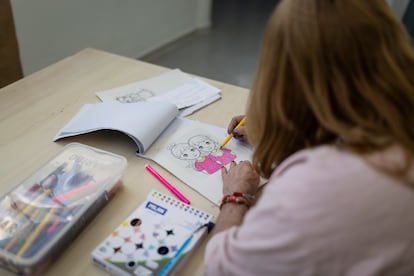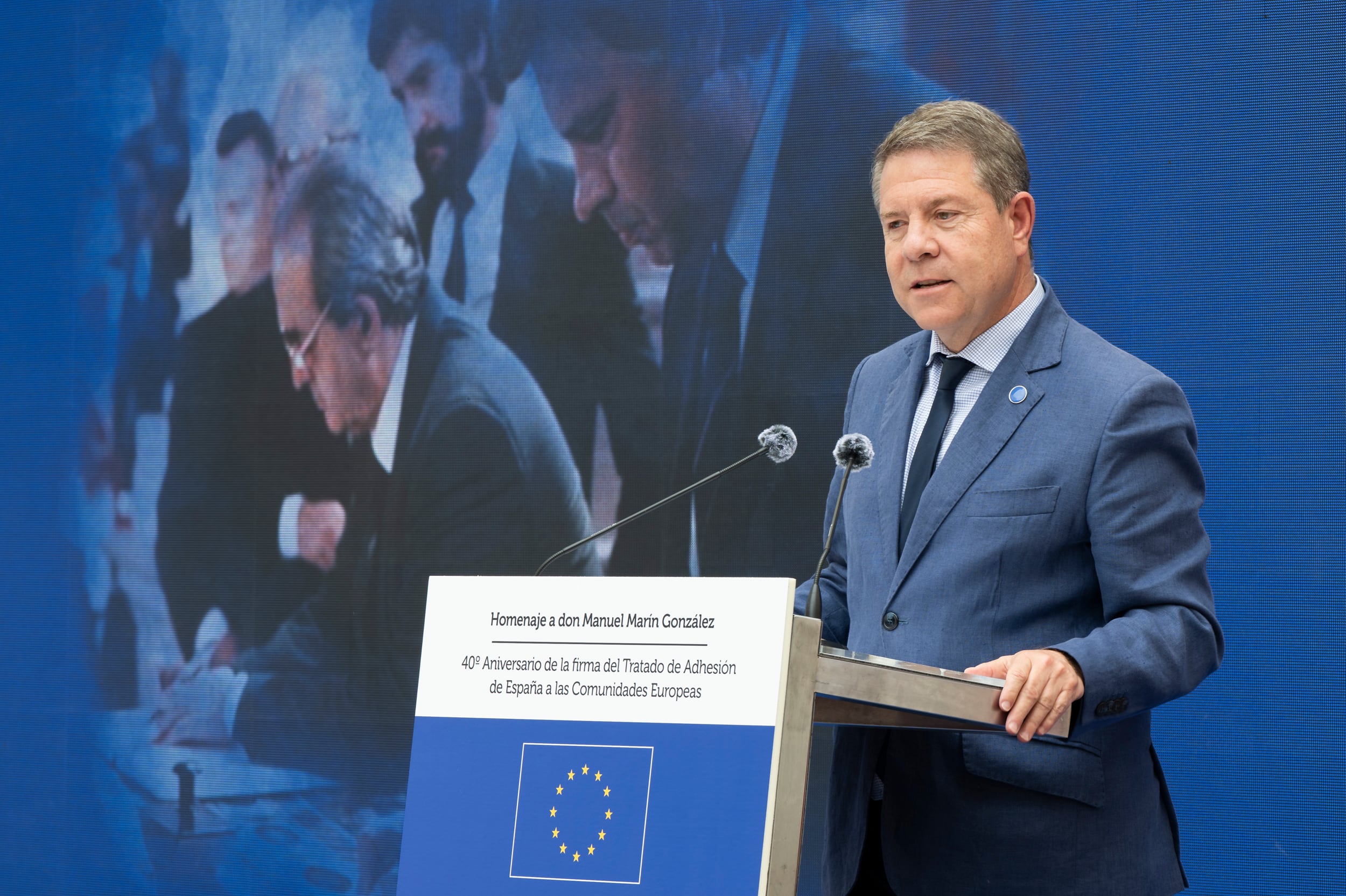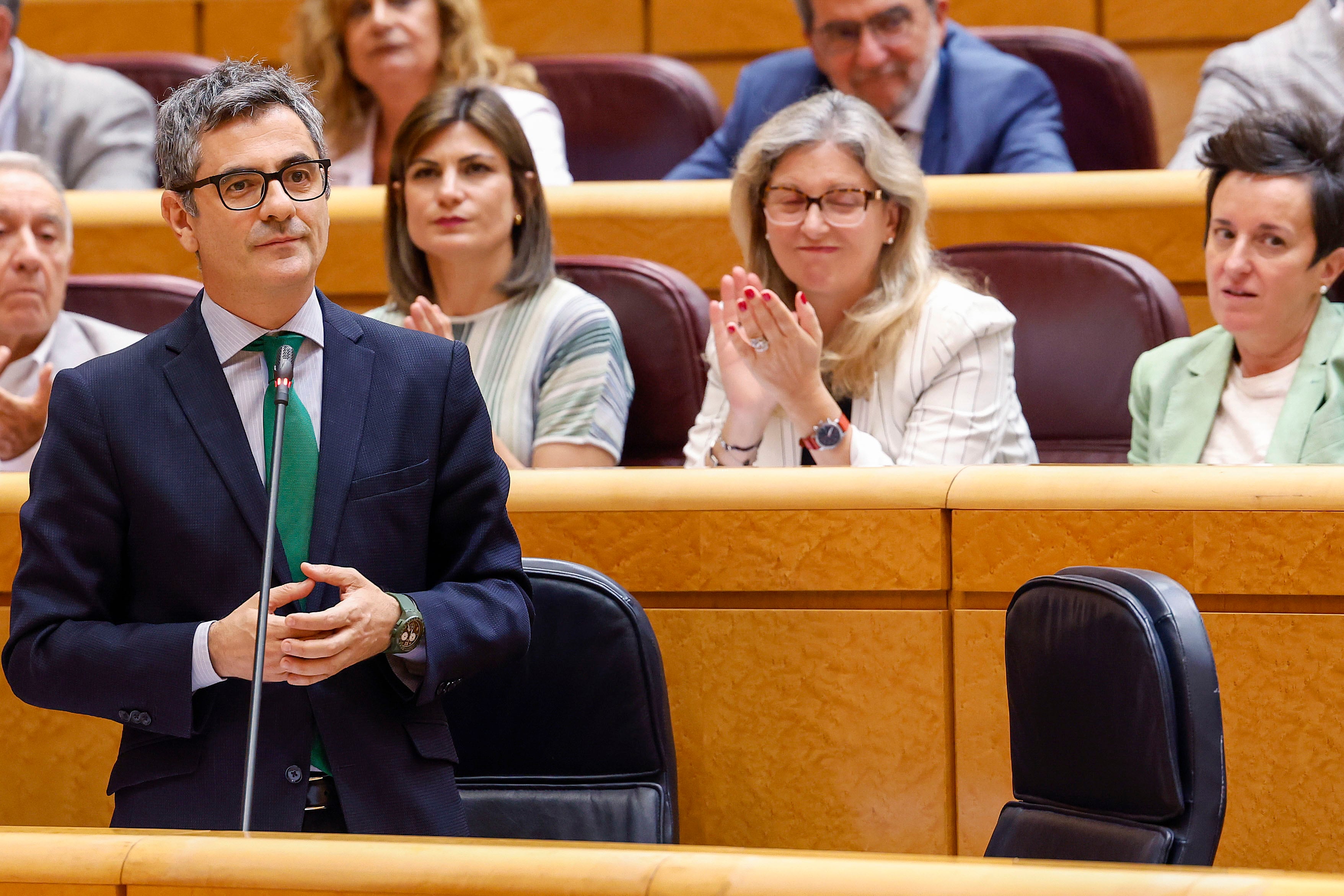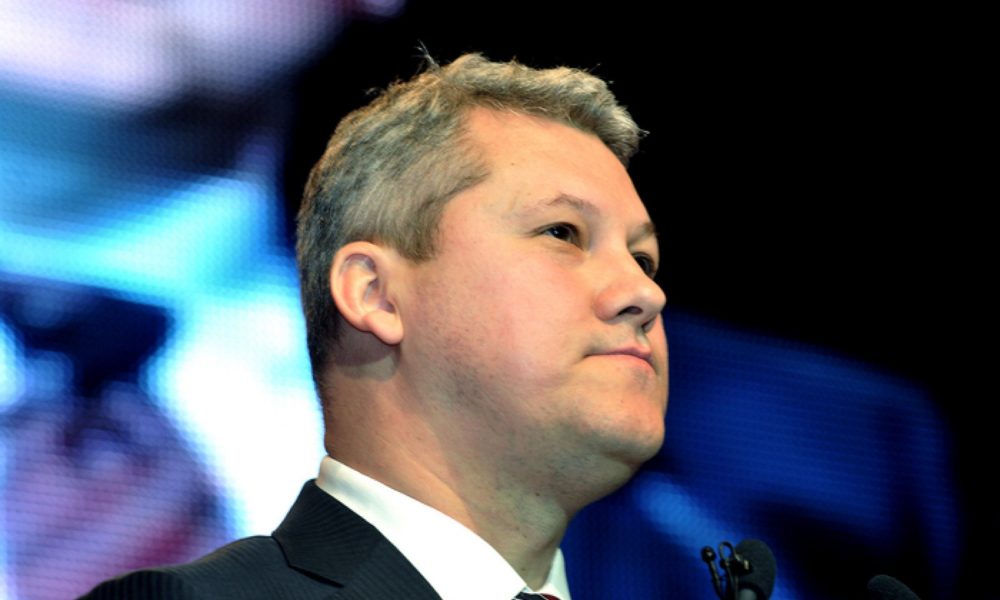A bubble to protect the most vulnerable dams: « Before it was a daily struggle » | Society

Yasmina is 23 years old and arrived at the Module of Women of the Brians prison 1 Five months ago. He meets a sentence for a strong robbery in a dental clinic that he doesn’t even remember, he says, because that day he was « very drugged. » If jail is already a hostile medium for anyonehis income was aggravated by the relationship he had with some dams and a fight. The address just took three months to select it to enter a kind of prison bubble. « Here we are more vulnerable people, who have suffered extortion and we are more sensitive, » reads, something nervous, in a small piece of paper in which he has written a few things that he did not want to forget.
That « here » is the Compensatory Intervention Unit (UIC), a space in which about twenty inmates – now there are 17 – coexist out of the rest of prey, which make life on the lower floor, « below », as they say. That adverb is sneaking into all conversations, it works almost as an antonym of « here » in a wide range of contexts: from the place to the tension that is lived or the group spirit. UIC users go « below » only when they have to go to their cells, and every time they do they go in a group and with empty halls.
A specialized team of guards, educators and psychologists ensures them. The entry criteria is not the crime, but its adaptation and its relationship with the rest of inmates in the common regime. 35% have some disability. Users have serious difficulties in living in common spaces, but They do not fulfill, however, criteria to be admitted to psychiatric units. « The more vulnerable you are, the older the pressures of the dams can be. And any pressure in jail can condition your itinerary outward, » says Gemma Torres, former director of Brians I and now deputy director general of the Generalitat Rehabilitation Program. The idea is that after a limited period, to force the rotation and the number of beneficiaries, the beneficiaries of the program recover their personal autonomy and can return “below” strengthened, in addition to working their insertion in the definitive freedom. « I am screwed because I am in jail, but now I feel cared for, protected and helped, » says Yasmina about the results, which summarizes in a « I have known my peace. »
Addictions and traumas, almost always motivated by violent episodes suffered at some point in their life, are usual patterns of the beneficiaries of this program. There is a third factor that is not unusual: self -harm, used as an exhaust valve. « Just feel listened to that anguish, » explains Carmen, one of the educators of the unit, which values the new relationship with the officials, but also to the network that ends up weaving among the inmates themselves: “We have not had suicide attempts because they improve here a lotthey can be controlled much more closely and this is a space where they can speak and explain. ”The proximity between officials and inmates is total and it is not uncommon to find a guard sitting in the dining room talking with a group of them. The head of surveillance, Óscar, has gone from using the last name to address them to treat them by the name.“ It seems nonsense, but it is more personal and you end up generating confidence. And if they see you near you, when they need it they will ask you for help, ”he explains.
María del Mar (52 years old) explains in another way what it is for her, as a user, what is the UIC: « Despite being in jail it is quite pleasant and I feel sure. Down my refuge was the room, but until I was there it was all tension, because of my insecurity, and it was a daily struggle. » That has been his life since in the 1990s he began to enter and leave prison. He does not hide his addictions – « at 14 he already snorted the 16 injected me, » he says – and neither does a personal change that explains without self -complacing: « Below I consumed and here not, and that is a point in my favor. » He admits problems to « socialize » and also another issue: « I don’t like them to come to step on me. »
« We have to do different things to make different things happen, » says educator Carmen. In aggressive episodes, calm is sought and avoiding sanctions. They defend that it is not a simple matter of flexibility in treatment, or condescension, but of looking for alternative measures. And of a team of 32 people, among which are five social educators, a social worker, an occupational therapist, two psychologists (one clinical) and a nurse. There is another active ICIC In the prison of men of Puig de les Basses (Figueres, Girona) And the intention of the Generalitat is to open four more similar units. In the two active, four of the inmates who entered with the activated suicide prevention protocol have ended up deactivating.
Discipline, but alternative dynamics to punishments
The dynamics of containment and insulation more typical of prison regimes have been replaced by other positive reinforcements, with prizes such as video calls to families, scheduled outputs or makeup sessions, which are added to the usual workshops. On one of the walls of the patio, a mosaic is reproduced with the photos that were made between them during a course with an external entity. And they are proud.
All that is not at odds with internal discipline. Carmen defends that it must be fulfilled, which causes not all people to end up adapting to that special regime. One of the first users, he counts, came out because he had an obsession with eating basically sausage that did not adapt to habits, in this case food, which are attempted to instill as one more normalization route. Two days I was already out. « The first exits were a bit like that, and we learned, » he explains. Since then, a condition for the entry into the UIC was imposed: the new users had to commit to being at least three weeks with full respect for the rules, a kind of effort proof. In the two active units, 32 casualties have been produced, six per income in psychiatric or sanitary units, eight for voluntary low and other regimental expulsions.
Aina, The unit of the unit that is part of a team of three people from the Sant Joan de Déu Foundationinsists on the need to offer inmates some « alternative thing » and leave behind « below, which is a traumatizing context » in people who have already reached prison, in 95% of cases, with some shock. « We always work the trauma and welcome them and try to give them resources, » he explains – so that they are safe people. We try to work the strengths and not revictimize. It is an opportunity to give them a different role as mothers, daughters or workers and who discover new more functional personalities. » Revictimization is a recurring concept among women’s prisons workers, on whose back the stigma of a double conviction, penalty and family.
The question is to give new opportunities, a future away from bars. Yasmina says he would like to be a photographer or work in a pharmacy, but his face lights up with a huge smile when he points out what his most urgent dream is: « Going with my family to celebrate the Lamb party. » Milestones that for those who have no idea what a prison is may seem impossible and frustrating. Ana, the occupational therapist From Sant Joan de Déu teamhe considers it good news. « Having goals in life is good and having enthusiasm in a project is healthy, because it motivates. Just what would have to surprise us is that they have no goals. »





:format(webp)/s3/static.nrc.nl/wp-content/uploads/2024/07/22171048/web-2307BUI_Argentina1.jpg)

